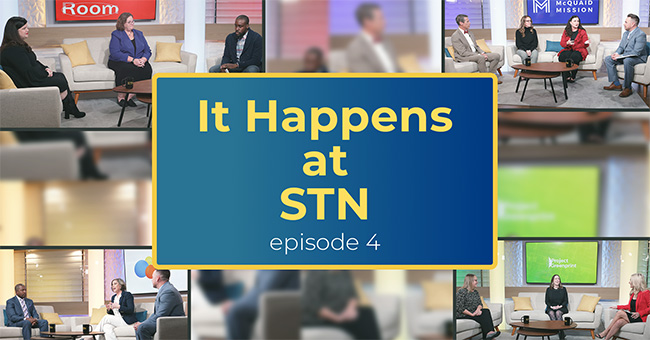It boils down to math problems that must be solved.
According to U.S. Census estimates for 2021, there are roughly 5 million people living in the greater Phoenix area. That number keeps growing. According to that same Census estimate, more than 150 people move into the Valley of the Sun every single day.
In order to meet the need for housing in the Valley, roughly 150,000 housing units need to be built, but last year, only 31,000 were. That means, more people living on the street and more strain on the systems designed to provide the services they need and keep them safe.
Take UMOM for example. They provide shelter, assistance and affordable housing opportunities for women and families in the Phoenix area. Right now, more than 200 families are on the waitlist to receive shelter assistance from them. As more people move into an area where not enough affordable housing is available, UMOM’s waitlist will get longer. The problem will get worse.
So, what can be done to address the assistance shortfall now? Who needs to be involved in getting it done? And, what happens if a solution isn’t found?
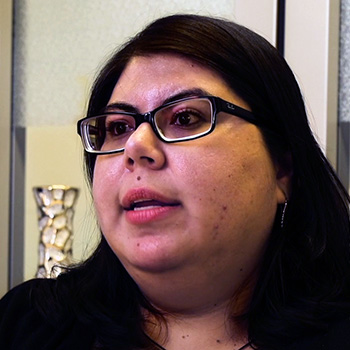
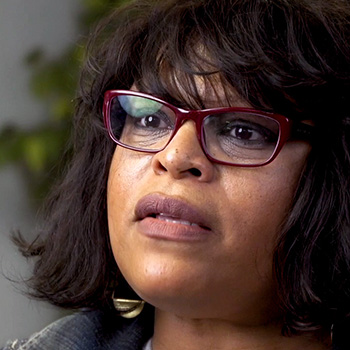
Action Panelists
Jackson Fonder
CEO – UMOM
Joan Serviss
Exec.Dir. – Arizona Housing Coalition
Amy Schwabenlender
Exec. Dir. – Human Services Campus
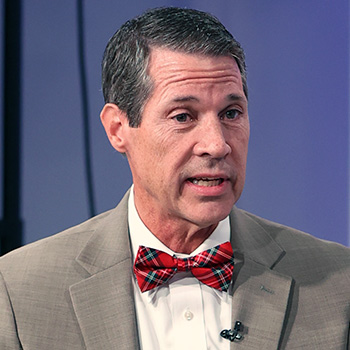
Bad Math
I’m as scared as anybody looking at those numbers because it is overwhelming. We’re one of the few cities in the United States that people continue to come to. This problem is not staying flat. This problem’s going to continue. We’ve heard it said before: we can’t build our way out of this. We knew the numbers five years ago and we didn’t do enough. We know the numbers five years from now. My question is, will we do enough? Will we do it fast enough?
You have also the rise of rents in Phoenix over the last couple of years, they’ve skyrocketed. A lot of our families are being priced out of the market. You’ve got high inflation. We haven’t seen wages rise.
Multiple Solutions
Building more affordable housing is one solution. It is not the only solution. There are a lot of others. Whether it’s around zoning, or whether it’s expanding the Housing Trust Fund, or whether it’s about relaxing developer rules. Whatever we’re doing, I would say we’re not doing it fast enough. The sense of urgency needs to be pushed hard, otherwise, we’re going to end up in a situation that nobody wants. We’re going to start to look like a couple of cities that we don’t want to look like.
Progress Needs Partners
We can’t do this by ourselves. So we’re always looking for complementary partners; organizations that do something better than what we do. Or they do it differently. Or they just do it and we don’t do it. The opportunity to combine forces with A New Leaf, or a Homeless Services Campus, or a Salvation Army or Mercy Care… that list goes on and on. It does not get any better than that.
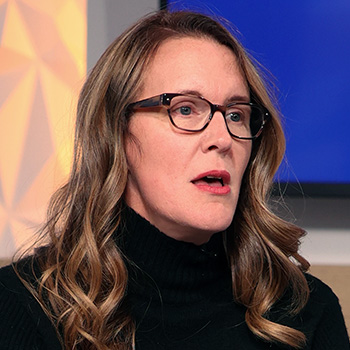
Community Involvement
It takes a community. It takes a village. There have been a lot of conversations, forums and summits and workshops. We have innovative approaches and solutions. We have best practices now. That’s encouraging. That’s exciting.
Key Ingredients
There are three necessary ingredients to addressing housing instability. Financial resources. We need ongoing sustainable funding to address housing insecurity.
Political will. We have a new administration and freshmen lawmakers coming. We want them to be educated on all the impacts of housing instability.
Then we also need community will. We need to talk to our friends and our family. I want my husband, [and] I want my kids to be telling their friends and their coworkers and their fellow students all about the issues that their mom tries to address around housing insecurity.
Getting the Message Out
Ultimately we need to broaden it beyond just our sector, broaden it to the general community, our neighbors, our friends, and our Facebook and Instagram friends. Also to lawmakers.
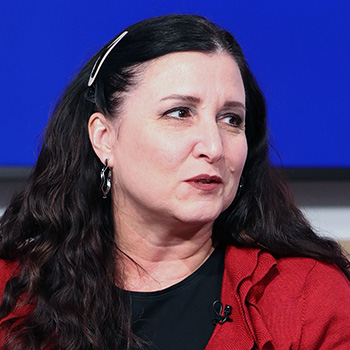
Numbers Problem
Those numbers come from trusted sources about people who are still moving into Phoenix and Maricopa County. Unless we find a way to deter people from coming to Phoenix, which I’m not suggesting, we’re going to have this constant inflow of people.
Lagging Wages
I would ask employers to look at where are their employees living. Do they own homes? Are they renting? What are they paying their employees? Pre-pandemic it was $22.56 an hour [that] a person had to make to afford a two-bedroom home at the lowest rent. So if an employer isn’t paying their employees at least that much money, they’re not going to afford a place to live.
This isn’t something that we can blink at and it’s going to go away. I would invite anyone to come and visit the Human Services campus. Don’t just drive down Madison Avenue. You get a glimpse of the unsheltered. Come onto the Human Services campus and talk with us and see what we do. Talk to people who are going through this experience because they’re human beings from all walks of life. More and more first-time homeless people who have a job that can’t afford a place to live.
Urgent Issue
I don’t do crisis fundraising. I don’t believe that’s really a legitimate long-term strategy. So I don’t say this to create a crisis and [say] ‘give us more resources.” I say this to create urgency. We have a community where all the people who want to live here do not have an affordable place to live.
We have to continue the urgency and treat homelessness as a public health crisis. People can’t be healthy if they don’t have a home.


